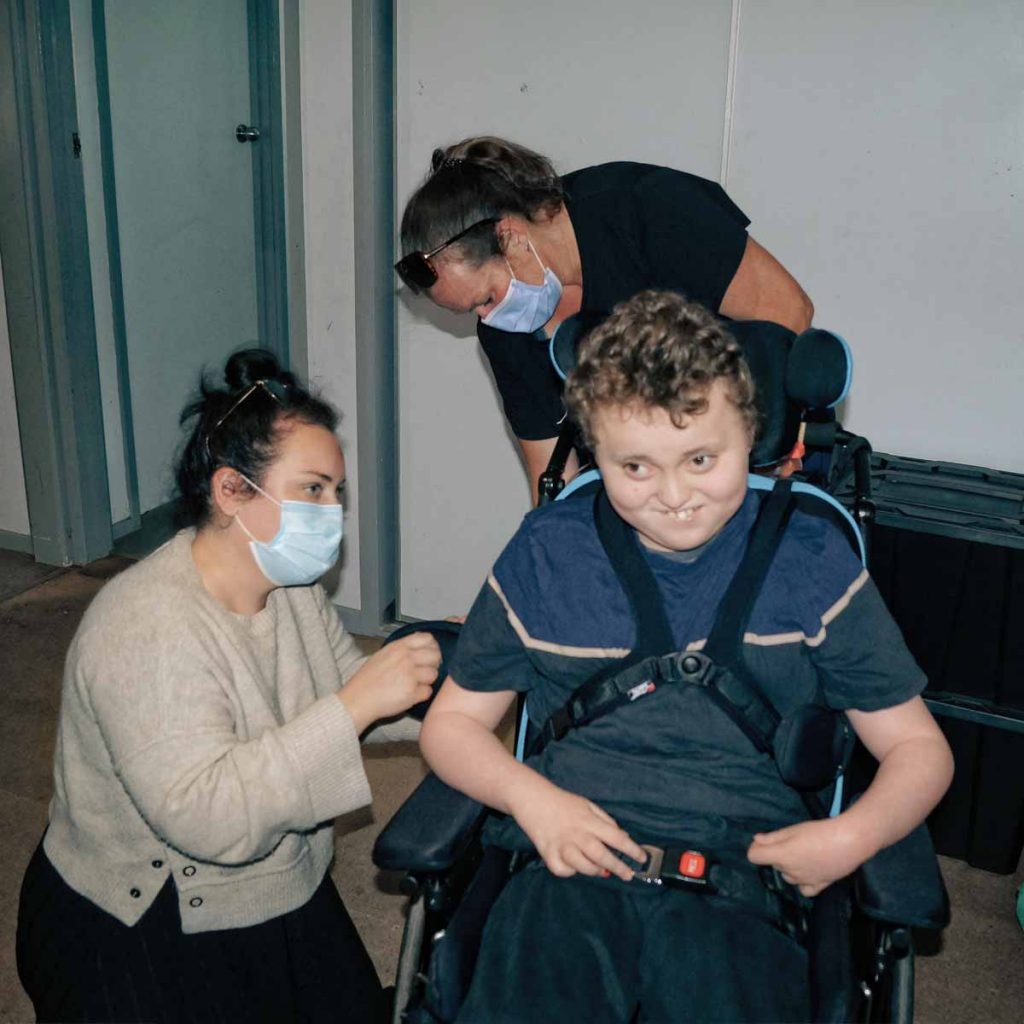OUR THERAPIES
Paediatrics
0-7 years
Paediatric Physiotherapists are specifically trained to assess and identify developmental delays or atypical development in infants and young children.
This may be due to a range of causative factors which your therapist can assist you and your childs’ care givers ie: maternal health nurse, GP, Paediatrian to identify.
Common occurrences that Physiotherapy can help address in babies and young children include:
- Flattening of the cranial bones (Plagiocephaly)
- Tight neck muscles (Torticollis)
- Acquired Brain Injury
- Post Botox therapy intervention
- Muscular Dystrophy
- Slow development of motor skills such as rolling, crawling and walking often referred to as “global developmental delay”
- Difficulties with balance, co-ordination or overall movement control.
- We can also assist in equipment prescription such as walkers, wheelchairs, adaptive bikes and standing frames.
Our Senior Physiotherapist ; Rachael Cheesman is always on hand to assist with assessment specific to any Neurological conditions and is a qualified Bobath Practioner. The Bobath method is the practise of facilitating normal movement patterns and motor control with ultimate mastery of more efficient movement throughout your childs growth and development.
At The Neuro Practice our therapists are happy to see your child in the clinic, at home, in your early childhood or Kindergarten setting, at the park or for water play/hydrotherapy at the pool. We pride ourselves on individually tailored play-based therapy so that your child can reach their full potential and maximise their development in those early years. We also happily collaborate with your therapy team to provide the most comprehensive and goal orientated program for you and your child.

7-12 years
Paediatric neurological conditions can affect a child’s physical function, including their mobility, strength, tone, range of motion and balance.
We work with a variety of paediatric neurological conditions at The Neuro Practice, including cerebral palsy, muscular dystrophy, injuries to the brain or spinal cord, developmental disorders and children that have been identified as having Global Developmental delay however they have not yet received a formal diagnosis.
During an initial assessment (typically completed with a parent or guardian present), our therapists will ask questions about the child’s medical history and goals, observe the child’s movement and conduct a variety of assessment measures. This will assist us to determine what kind of treatment is most appropriate and allow us to assess how effective the treatment is once it is implemented.
Therapy treatment for our paediatric clients is targeted to their needs, is fun and play-based to encourage the children to actively participate in their therapy. Therapy may involve a number of different treatments including hands on facilitation of improved movement control, exercises to improve strength and coordination, re-education and training of function such as climbing, bike riding, jumping and hopping. It may also incorporate stretching and hydrotherapy. We work closely with parents/guardians to educate them on how to best support their child with their rehabilitation outside of therapy time.
At this age range of 7-12, it is importance for children to be able to participate in activities with their peers and safely explore their independence. Therapists at The Neuro Practice work alongside occupational therapists to trial and set up appropriate equipment that can help facilitate this. Examples of equipment include specialised walking frames, wheelchairs, seating systems, bikes/trikes and standing frames.
In addition to in-clinic and home visits, The Neuro Practice offer community and school visits to help facilitate a more inclusive environment for the child. We provide education and recommendations to teachers, assist with alternative indoor seating arrangements, provide carer training for manual handling and positioning and review mobility in the school environment. Physical pacing and education to the child and family is important to aid understanding of the developmental stages whilst supporting and encouraging the safe growth and individuality of our clients. We provide family centred, evidenced-based, fun and effective treatment to help our clients achieve their maximum potential.

12-18 years
What is adolescence? Adolescence is the period of transition between childhood and adulthood. Children who are entering adolescence are going through many changes (physical, intellectual, personality and social/ developmental).
Adolescence, these years from puberty to adulthood, may be roughly divided into three stages:
- Early adolescence 11-14 years of age.
- Middle adolescence 15-17 years of age.
- Late adolescence 18-21 years of age.
The five leading characteristics of adolescence are biological growth and development, an undefined status, increased decision making, increased pressures, and the search for self.
Our Physiotherapists and Exercise Physiologists enjoy the challenging of this age group. We ensure our therapy is tailored to each adolescents’ needs and interests to make their therapy fun, engaging and rewarding. We offer a range of services and treat each person as an individual and ensure their needs are heard and included in their therapy plan. We keep in mind the needs and challenges of their care givers, teachers and peer interactions where relevant, and offer therapy in all settings : home, school, sporting environments, hydrotherapy and in clinic.
We understand that your adolescent needs to engage with their therapist and provide consistency of care throughout their rehabilitation program. Adolescent conditions can range from delayed or atypical physical development, spasticity, issues with mobility, injury or perhaps a specific Neurological or developmentally challenging condition. Please feel free to make an appointment to discuss the needs of your adolescent with our skilled therapy team.


